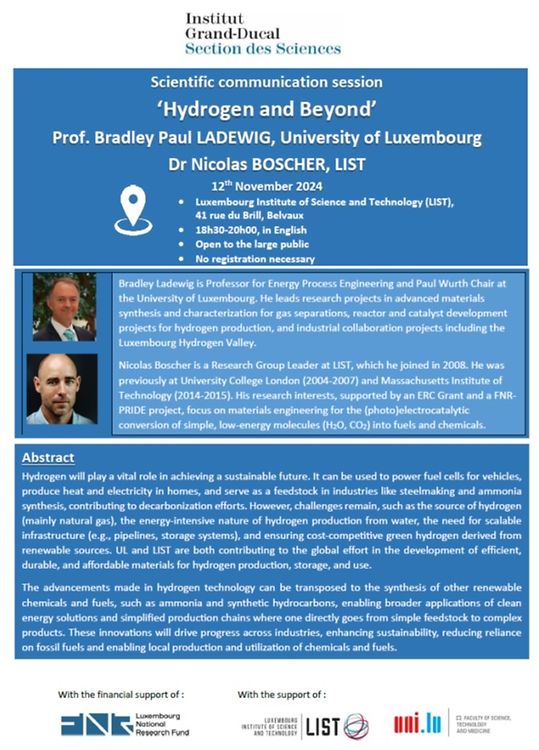Conference by Nicolas Boscher & Bradley Ladewig "Hydrogen and beyond"

Hydrogen will play a vital role in achieving a sustainable future. It can be used to power fuel cells for vehicles, produce heat and electricity in homes, and serve as a feedstock in industries like steelmaking and ammonia synthesis, contributing to decarbonization efforts. However, challenges remain, such as the source of hydrogen (mainly natural gas), the energy-intensive nature of hydrogen production from water, the need for scalable infrastructure (e.g., pipelines, storage systems), and ensuring cost-competitive green hydrogen derived from renewable sources. UL and LIST are both contributing to the global effort in the development of efficient, durable, and affordable materials for hydrogen production, storage, and use.
The advancements made in hydrogen technology can be transposed to the synthesis of other renewable chemicals and fuels, such as ammonia and synthetic hydrocarbons, enabling broader applications of clean energy solutions and simplified production chains where one directly goes from simple feedstock to complex products. These innovations will drive progress across industries, enhancing sustainability, reducing reliance on fossil fuels and enabling local production and utilization of chemicals and fuels.






